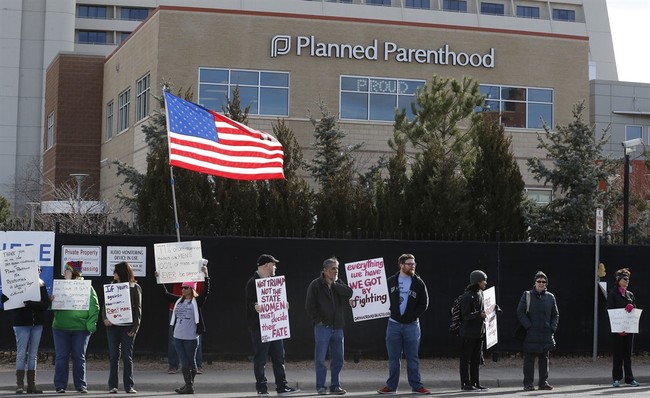
I’m really not sure how this is possible. It has been less than two weeks since the Supreme Court ruled that South Carolina could block Medicaid reimbursements to Planned Parenthood.
At issue was a provision of the federal Medicaid law that guarantees Medicaid patients the ability to choose their doctors, or in the words of the statute, they are entitled to “any qualified and willing provider.” South Carolina, however, maintained that it could disqualify Medicaid providers for “any reason that state law allows.” Or as Gov. Henry McMaster, a Republican, put it, “Taxpayers should not be forced to subsidize abortion providers who are in direct opposition to their beliefs.”
On Thursday the Supreme Court, by a 6-3 vote along ideological lines, agreed.
So today Planned Parenthood sued the federal government arguing that it could not cut them off from Medicaid reimbursements.
Planned Parenthood sued the Trump administration on Monday over a provision in President Donald Trump’s sweeping domestic policy bill that would prevent its health centers from receiving Medicaid reimbursements.
In a complaint filed in Boston federal court, Planned Parenthood said the provision is unconstitutional because it singles out members for advocacy for sexual and reproductive health care, including abortions.
It also said enforcement would have “catastrophic” consequences for its nearly 600 health centers, and could deprive care to more than 1.1 million of its approximately 2.1 million patients annually.
“The true design of the Defund Provision is simply to express disapproval of, attack, and punish Planned Parenthood, which plays a particularly prominent role in the public debate over abortion,” Planned Parenthood said.
And in a matter of hours the Boston judge who got this case, Judge Indira Talwani, put in place a temporary restraining order blocking a provision of the bill that congress just passed and President Trump just signed.
BREAKING: Federal judge in Boston blocks Big Beautiful Bill provision barring Medicaid funding for Planned Parenthood. Judge Indira Talwani (Obama) issues TRO, sets preliminary injunction hearing for July 21. Doc: https://t.co/BCkxQOhFop Earlier: https://t.co/dKQYXtNPXv
— Josh Gerstein (@joshgerstein) July 7, 2025
The TRO reads in part:
Defendants, their agents, employees, appointees, successors, and anyone acting in concert or participation with Defendants shall take all steps necessary to ensure that Medicaid funding continues to be disbursed in the customary manner and timeframes to Planned Parenthood Federation of America and its members; Planned Parenthood League of Massachusetts; and Planned Parenthood Association of Utah.
Is this a nationwide TRO or does it only apply to PP of Massachusetts and Utah? It’s not clear to me because it does say funding should continue to Planned Parenthood Federation of America, which is a national organization. Didn’t the Supreme Court just put an end to nationwide TRO’s by federal judges? I thought they did but maybe this is an exception somehow?
The TRO was just announced about half an hour ago (as I write this) so no one has a story up about it yet explaining how this outcome jibes with those two recent SCOTUS decisions. It seems to me that having a lone judge in Boston tell a majority of congress and the president they can’t do something presents a bit of a problem, especially if the underlying issue is one the Supreme Court has recently settled. But I’m not an attorney so I’ll wait for the experts to weigh in.
What I can say is that Judge Indira Talwani has a history of ruling against the Trump administration. Back in April she blocked Trump’s effort to end a Biden-era immigration program.
A federal judge in Massachusetts has moved to prevent President Donald Trump from canceling a program introduced under his predecessor, Joe Biden, that grants parole and the right to work to immigrants from Cuba, Haiti, Nicaragua, and Venezuela (CHNV).
U.S. District Judge Indira Talwani ruled Monday that migrants from those nations can remain in the United States and continue to seek permission to work legally or apply for adjustment of status.
“If their parole status is allowed to lapse, plaintiffs will be faced with two unfavorable options: continue following the law and leave the country on their own, or await removal proceedings,” Justice Talwani reasoned in her 41-page ruling.
By tomorrow we should have some responses about how likely this is to stand. It would certainly be nice to see the Supreme Court smack this down quickly.











